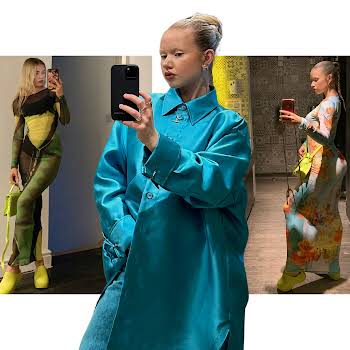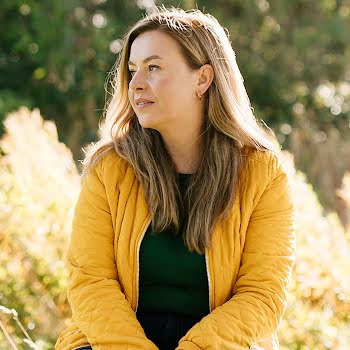
By Niamh Ennis
19th Aug 2024
19th Aug 2024
Niamh Ennis shares why you should stop chasing happiness and should chase contentment instead.
What if everything you did, was so that you could know what contentment felt like, rather than chase the elusive concept of happiness? What if you believed that this simple, but powerful shift in perspective could in fact lead to a simpler, more sustainable and fulfilling life?
The relentless pursuit of happiness is something we’re constantly exposed to everywhere—from traditional media right through to social media—but we are starting to realise that it is, in fact, all a bit of a mirage.
Our connection to happiness is all too often tied to external circumstances. It’s that rush you feel when something good happens, like getting a promotion, receiving an exciting gift, or enjoying a very fun outing. But these moments are temporary, and when the high fades, we’re left searching for the next hit of happiness, and on it goes.
Why happiness is so elusive
Often, happiness is conditional on something specific happening like getting a new job, falling in love, or going on a dream holiday. These conditions create temporary spikes in our emotional state, which can quickly fade as we adapt to our new circumstances.
In today’s world, there’s a pervasive pressure to “be happy” all the time. Social media amplifies this by showcasing others’ highlight reels, leading us to believe that perpetual happiness is not only possible but expected. This pressure creates anxiety and a sense of failure when we don’t feel happy, even though it’s natural to experience a range of emotions.
Contentment, on the other hand, is a far more stable, grounded state of being. It’s not about those high peaks, but rather a steady, sustainable sense of well-being. It’s the feeling you get when you’re at peace with where you are in life, even if everything isn’t perfect. It’s the ability to sit with what is, to appreciate the small, quiet moments, and to find satisfaction in the everyday.
When we choose to focus on contentment, we’re cultivating resilience and self-acceptance and acknowledging that life is not linear but rather a healthy mix of ups and downs. It’s worth reminding ourselves here that contentment doesn’t mean settling or giving up on dreams; it means finding joy in the journey, not just in the destination.
When it becomes the goal, it frees us from the exhausting cycle of seeking external validation or the next big thing to make us “happy”. It allows us to be present, to live more fully in each moment, and to appreciate the richness of our experiences—good, bad, and everything in between.
It has everything to do with accepting and appreciating where you are in life now, regardless of any external conditions. Contrary to popular opinion, contentment doesn’t mean settling or giving up on growth; it’s about finding peace in the present while continuing to aspire for growth.
Why chasing happiness is exhausting
You’re left always wanting more. That insatiable feeling of constantly seeking happiness can lead you to what’s often known as the “hedonic treadmill”, where you always need more to achieve and maintain that same level of satisfaction. This cycle can be both draining and deeply unfulfilling and leave you feeling more than a little empty.
It will come as no surprise however that chasing happiness regularly involves comparing your life and yourself to others; observing what they have and believing that you need the same to be happy. When you repeat this, you’ll experience that feeling of coming up short, nothing will make you happy!
What can you do to cultivate contentment?
1. Reframe your mindset
Shift your perspective from “I’ll be happy when…” to “I’m content with…”. This small change in language can have a profound impact on how you view your life. It helps you appreciate the now, rather than constantly longing for the next thing.
2. Accept what you can’t control
A significant part of contentment is acceptance. Acknowledge that there are things in life you can’t control, and instead of fighting them, find peace in letting go. This doesn’t mean you’re passive—it means you’re focusing your energy on what you can influence.
3. Watch what (and who) you let into your space
Be mindful of what you consume whether it’s social media, food, the news, or even the company you keep. Surround yourself with positivity and limit exposure to anything, or anybody, that drains your energy!
4. Protect yourself better!
Contentment starts within. Practice self-compassion by treating yourself with more kindness and understanding, especially when things don’t go as planned. Recognise that being content doesn’t mean being complacent or settling—it just means being kinder to yourself in the process.
What happens when you reach contentment?
The reality is that when you’re content, you’re much more present in your relationships, and you won’t constantly be looking for others to make you happy, which allows for deeper, more genuine connections.
When you’re content with what you have, you naturally become more grateful for the small things in life—things that often go unnoticed when you’re caught up in the pursuit of happiness.
Chasing happiness can often lead to a never-ending cycle of desire and disappointment. On the other hand, chasing contentment allows you to find peace and satisfaction in the present moment, regardless of external circumstances.
Choose Contentment
By focusing on contentment, you’re choosing a path of sustainable well-being, one where you’re not constantly yearning for more, but instead, appreciating the richness of what is already present in your life. This doesn’t mean you won’t experience happiness—quite the opposite.
It means that happiness becomes a natural byproduct of a contented life, rather than something you’re endlessly chasing.
And who doesn’t want that?
Niamh Ennis is a leading Transformation Coach & Business Mentor who, through her private practice, programmes, workshops, and podcast, supports women to achieve clarity, build confidence, and master the strategies needed to elevate in life and business. She’s also the Lead Coach in The IMAGE Business Club. Find Niamh on niamhennis.com or @1niamhennis
Feature image via @matildadjerf on Instagram.























